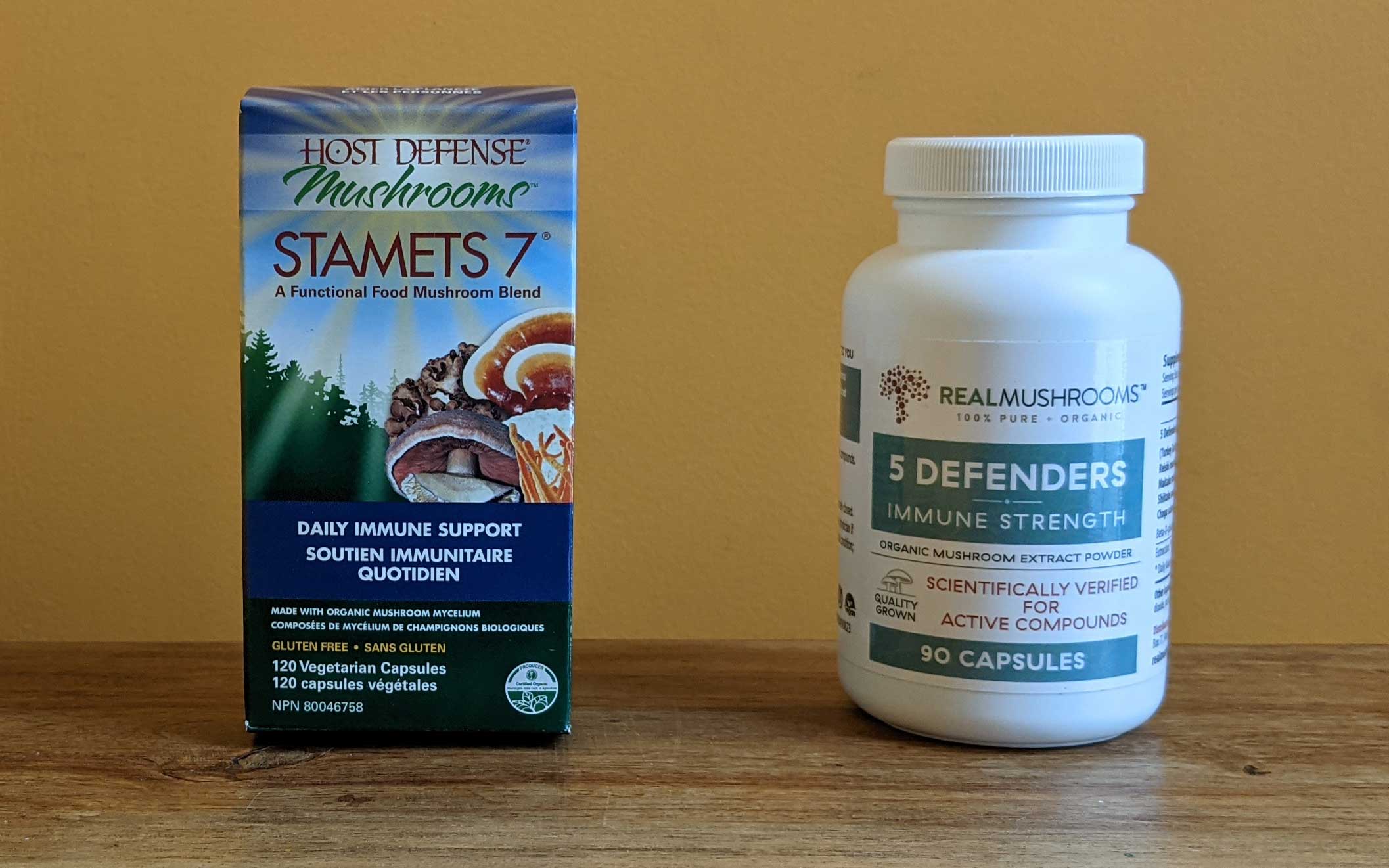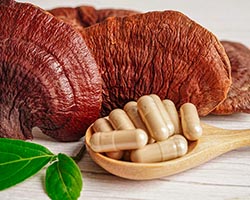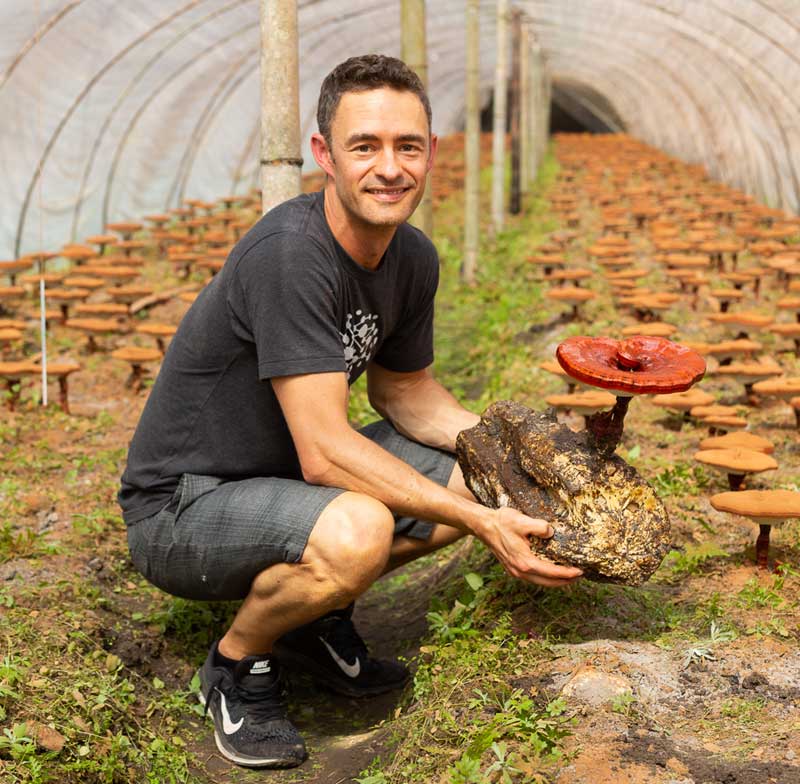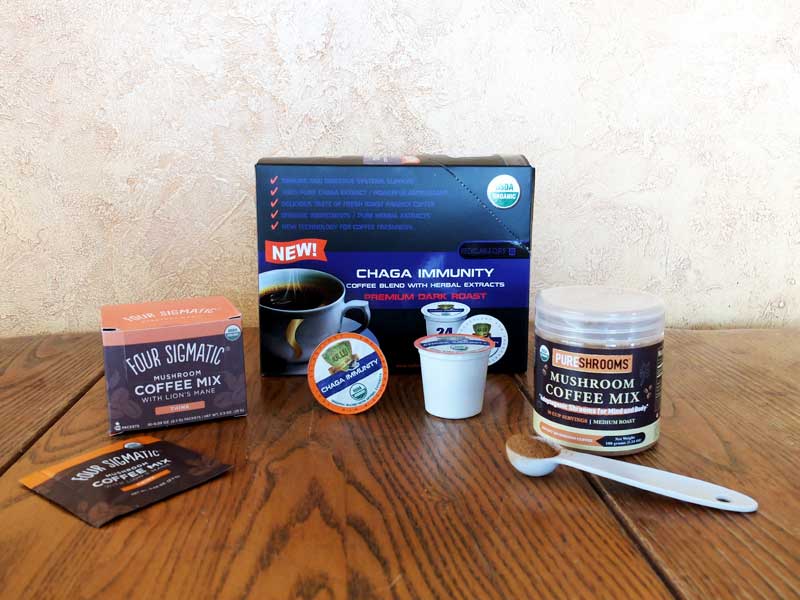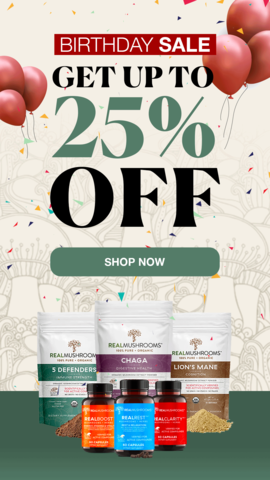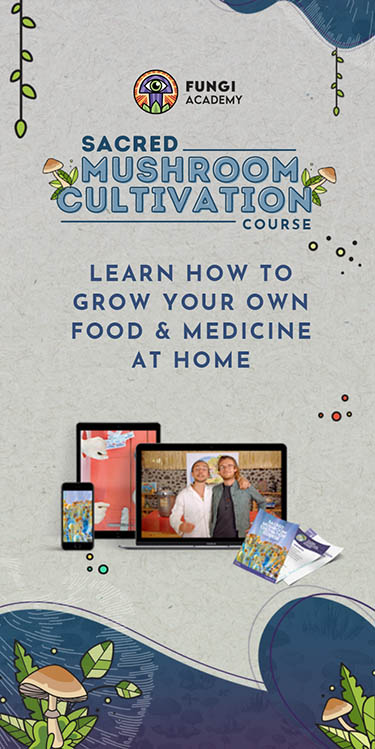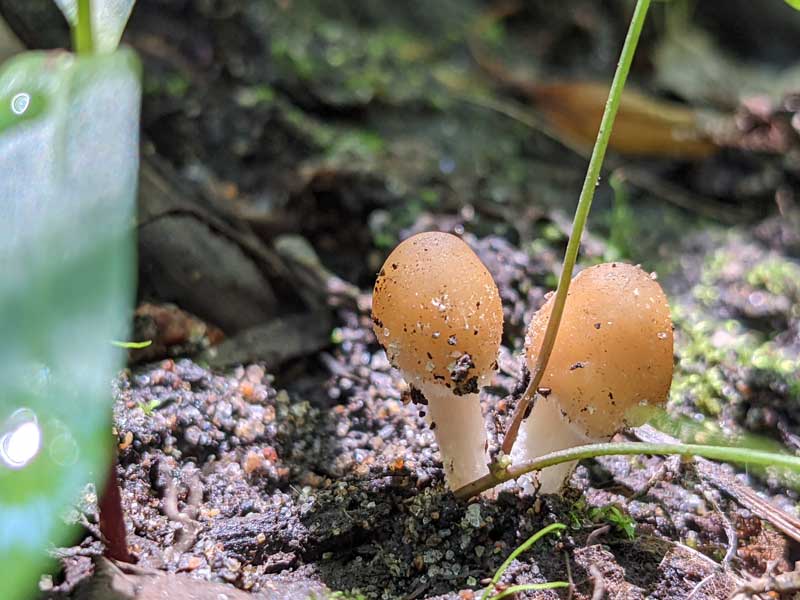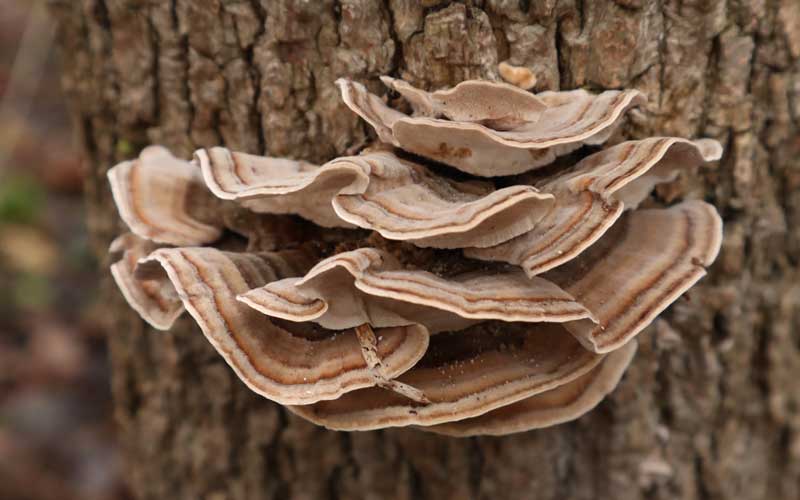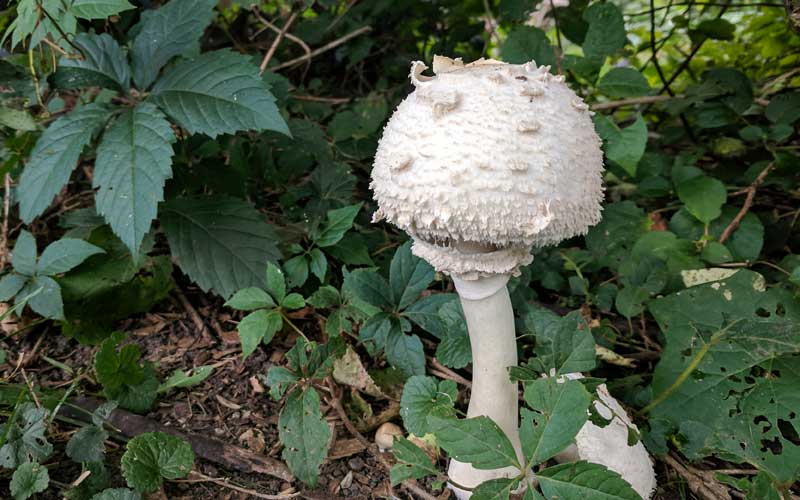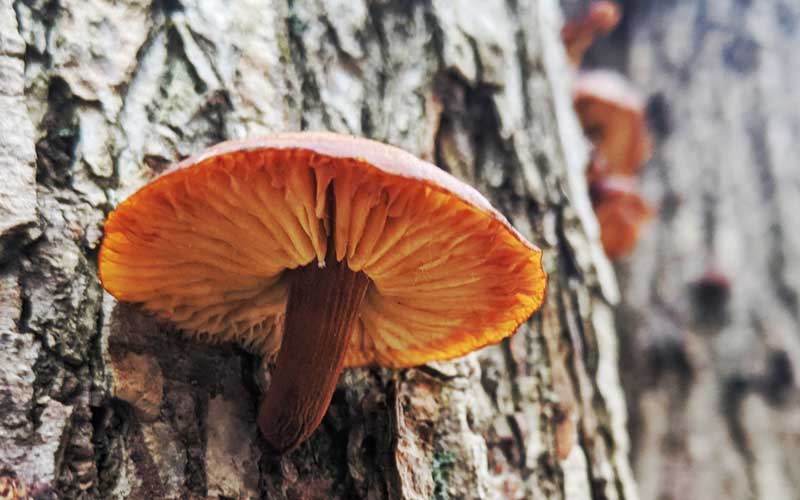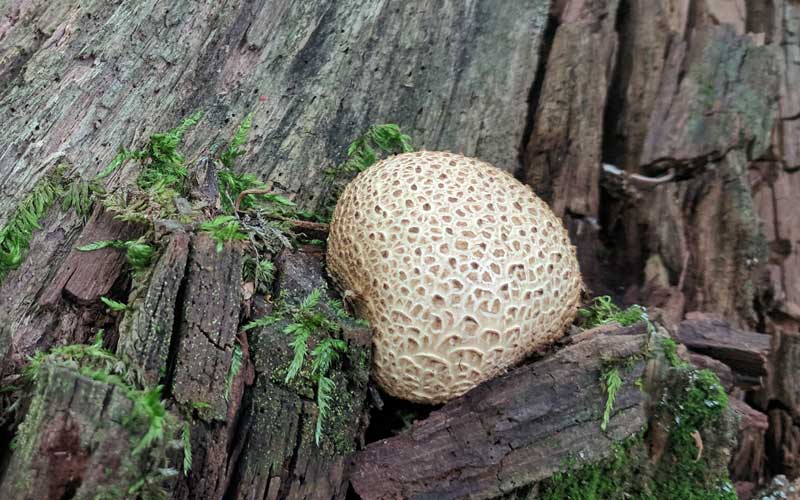The best mushroom supplements – do they come from mycelium, or from the mushrooms themselves?
It would be nice if we could get all the health benefits of mushrooms simply by eating them as part of our diets.
Truth be told, if you’re a real mushroom fan and gourmet, you can get pretty close.
There are plenty of edible mushrooms that have powerful health benefits.
Mushrooms like Shiitake, Oyster, Cordyceps, Maitake and Lion’s Mane.
Some of these you can buy locally. Others you can grow for yourself, with home mushroom grow kits.
But… that doesn’t cover all medicinal mushrooms.
Some functional mushrooms, like Reishi, Turkey Tail and Chaga are not going to find a place on your dinner plate. They’re hard and won’t be impressed by your attempts to sauté them.
Chaga will go further and blunt pretty much any knife or even saw you can throw at it. And good luck putting a block of chaga in your food processor or blender. The chaga will win.
Reishi, Turkey Tail and Chaga each have powerful medicinal properties.
Fortunately, you still have options. If you can’t eat them… you can take them in supplements.
Mushroom supplements come in three main forms.
Do a search on Google for mushroom supplements and you’ll find there are three main ways to take them.
Capsules, powders or tinctures.
Mushroom capsules:
The supplements are powders inside of capsules. You can find bottles of capsules for individual mushrooms, like Reishi, Turkey Tail, and so on.
You can also buy bottles of capsules that are a blend of a few different mushrooms.
For example, the 5 Defenders supplement from Real Mushrooms contains Turkey Tail, Reishi, Maitake, Shiitake and Chaga. You get a bit of each in every capsule.
And Stamets 7 from Host Defense contains Royal Sun Blazei, Cordyceps, Reishi, Maitake, Lion’s Mane, Chaga and Mesima.
There are plenty more companies and brands to choose from. In fact, the number of companies offering mushroom supplements seems to be growing on an almost daily basis.
And truth be told, many of them are sourcing their supplements from a few wholesale suppliers to the industry, like Nammex.
Mushroom powders:
The mushroom powders you can buy are basically a capsule-free version of the powders you take in the capsules.
With the powders, you can use add them to your favorite soups, stews or broths. Or use them in a smoothie.
Or add them to water to make a tea.
Keep in mind they all have their own unique taste. For example, Reishi is very bitter. It’s probably not a great addition to your favorite fruit smoothie.
Mushroom tinctures or extracts:
Mushroom tinctures come in small bottles with drippers. You can add them to drinks, or squeeze a couple of drops directly onto your tongue.
The promise of tinctures is that the active constituents are absorbed into your body faster.
In most cases, the best tinctures are made with a double extraction process. This means the active compounds are dissolved out of the mushrooms with both water and alcohol, in a two-step process.
But before you choose…
While you’re thinking about whether to go for capsules, powders or tinctures, you might want to give some thought to a big debate that's raging between a couple of giants in the industry.
The Jeff Chilton vs Paul Stamets debate - Are the best supplements made from a mushroom’s mycelium, or from its fruiting body?
Or maybe I should say, the Paul Stamets vs Jeff Chilton debate.
If you’ve read our page about mycelium, you already know that the mycelium makes up the bulk of the organism, and that the mushroom itself is simply the larger organism’s fruiting body.
So… if you want to make mushroom supplements, and you’re going to choose between processing either the mycelium or the body of the mushroom itself… which would you choose?
Should the powder in those supplements come from the mycelium or the mushroom?
This is a big debate right now, and has been for quite a while. And it’s a debate between two giants of the industry… Paul Stamets and Jeff Chilton.
Both have been leaders in the mushroom industry for over 40 years now, and both have companies that sell supplements.
Paul Stamets is the founder of Host Defense. Jeff Chilton is the founder of Real Mushrooms and Nammex.
Paul Stamet’s supplements are derived from mycelium that has colonised a substrate of brown rice… myceliated rice.
Jeff Chilton’s supplements are derived from the fruiting body itself, the mushroom.
Both contend that theirs is the better approach.
Which feels weird, like listening to your parents having a heated argument.
Let’s break this down and see if we can figure it out.
The pros and cons of mycelium.
Mycelium grows and thrives underground in a hostile environment, surrounded by bacteria, viruses and other fungi.
As a result, it produces powerful compounds to protect itself. Many of those same compounds, beta-glucans included, are beneficial to human health.
Some experts argue that mycelium is a better source of these compounds, because the fruiting bodies – the mushrooms – don’t have to survive very long. They appear above ground for just long enough to disperse their spores.
In other words, mycelium is the tougher part of the organism, and that results in greater benefits to human health.
True? Maybe, in part. But there is plenty of evidence that mushrooms contain just as much beta-glucans as mycelium.
Now for the cons.
When you buy a supplement that is derived from mycelium, you’re actually buying a great deal of brown rice, and a little bit of mycelium.
The mycelium is grown in a block of inoculated brown rice. The block is then dried and processed. So you’re buying a lot of starch, and a very small amount of mycelium and its beneficial compounds.
When you buy Stamets 7 from Host Defense, you’ll see on the box that the product is “Made with organic mushroom mycelium”. And under “Other ingredients”, it lists freeze-dried myceliated brown rice.
A lot of rice and starch, and not so much mycelium.
The pros and cons of mushrooms as a source of supplements.
The big pro here is that when you buy a supplement made from the fruiting body – the mushroom itself - that’s exactly what you get.
No rice or other substrate, just the fruiting body… the mushroom.
And keep in mind that healers from many cultures, over thousands of years, have always used the mushrooms, not mycelium.
What are the cons when it comes to taking supplements made from 100% fruiting body of the mushroom?
Hard to say.
But you should be aware that the mushrooms used to make supplements for North America come from China. In fact, 85% of the world’s mushrooms come from China.
Many of these mushrooms from China are certified organic. But that’s a Chinese certification, not USDA or the Canadian equivalent.
And I know some people claim mushrooms and supplements made from Chinese mushrooms contain high levels of heavy metals. But I have yet to see any scientific basis for those claims.
Why don’t companies use North American mushrooms for their supplements?
It’s too expensive. Wages and other costs are too high. Growing mushrooms is very labor intensive.
That’s why you see this division. Mycelium-based supplements are made in the US. Growing mycelium on grain is pretty inexpensive. Mushroom-based supplements come from China, because growing, harvesting and processing mushrooms is a lot more expensive.
Which kind of supplements should you buy?
That’s up to you.
For myself, I take mushroom-based supplements from RealMushrooms.
And I look forward to the day when those companies test not only for active compounds in their supplements, but also test for heavy metals and other contaminants.
I’d like to see some test-results that show their products are contaminant-free.
Related Topics:
8 Ways Mushroom Supplements Support Health and Wellness.
Mushroom supplements contain bioactive compounds that can contribute to your physical health, brain health and more. The full article...
Talking with Skye Chilton about the best mushroom supplements.
In this interview with Skye Chilton of Real Mushrooms, we talk about why some supplements are so much better than others. The full article...
Mushroom coffee - The best thing ever, or is it just bad coffee?
We look at three different mushroom coffees, from different companies, and in different formats. A good idea, or not? Read the full article...
How mushrooms are driving a new skincare revolution.
Mushrooms are used in a variety of skincare products, from serums, to cleansers, eye creams, moisturizers and more. Read the full article...
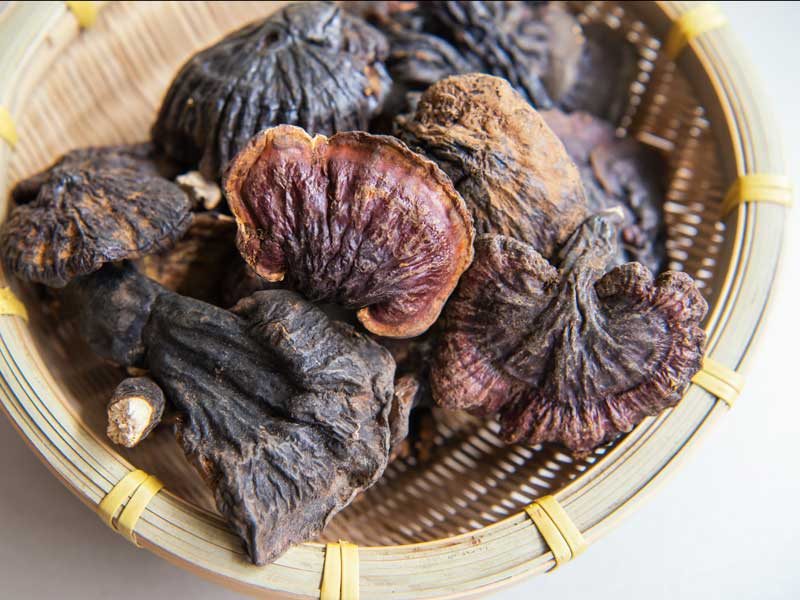
Medicinal mushrooms have been used by healers for thousands of years.
Medicinal mushrooms and fungi offer a variety of health benefits, many of them tied to supporting your natural immune system. Read the full article...
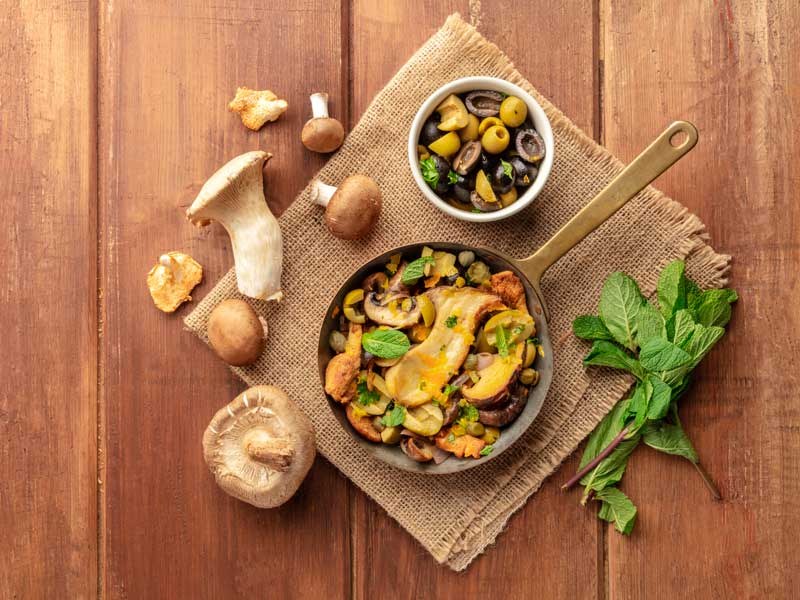
The nutritional value of mushrooms in your diet is greater than you think.
Mushrooms are dense with nutritional value and a variety of textures and flavors… including chicken, lobster and shrimp! Read the full article...
